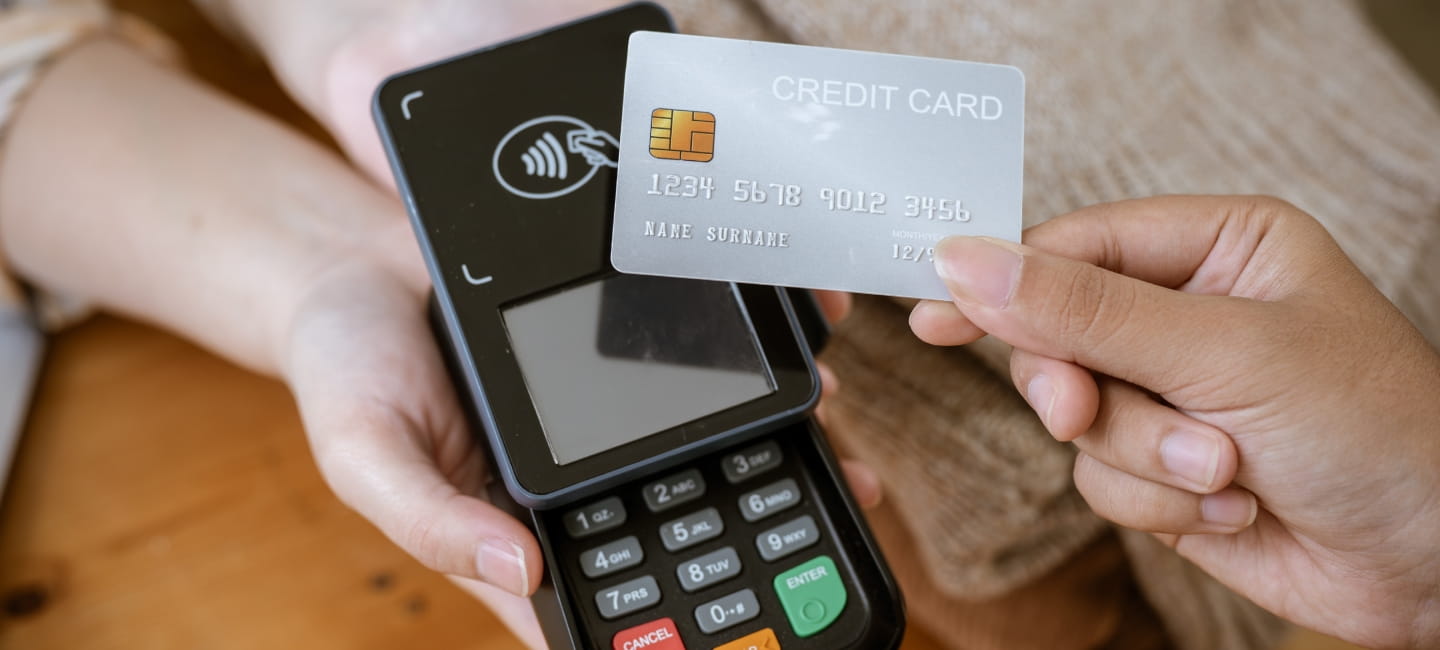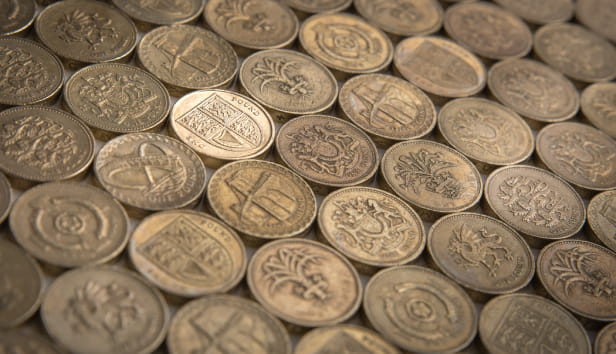
This article is for general guidance only and is not financial or professional advice. Any links are for your own information, and do not constitute any form of recommendation by Saga. You should not solely rely on this information to make any decisions, and consider seeking independent professional advice. All figures and information in this article are correct at the time of publishing, but laws, entitlements, tax treatments and allowances may change in the future.
When Matt Richards won silver at the Paris Olympic Games this year, he was able to do so with his family in attendance, despite them being scammed out of £2,500 when trying to buy tickets.
Financial journalist Martin Lewis came to the family’s aid, helping them get refunds for the phoney tickets, so they were able to be there to cheer on Matt – thanks to the fact the tickets were bought with a credit card.
With online scams more prevalent than ever, knowing about ‘Section 75 protection’ when using a credit card can save you thousands of pounds – at 50 years old, it’s never been more valuable than it is today.
And Section 75 of the Consumer Credit Act – to give it its full name - doesn’t just protect you in the event of you or your parents being scammed or caught out online.
It can also help when you encounter problems with entirely legitimate businesses, such as when they send you the wrong item, provide a service that wasn’t up to scratch or even go bust.
Yet despite the benefits of Section 75 protection, as many as three in 10 people don’t know it exists, according to research by TotallyMoney.
Put simply, if you use your credit card to buy something with a cash price of between £100 and £30,000, Section 75 gives you an added layer of protection if something goes wrong, says James Jones, Head of Consumer Affairs at Experian.
“Thanks to Section 75, if the goods are substandard or not as advertised – and the retailer can’t or won’t help – you can claim your money back from your card firm.”
This is because Section 75 of the Consumer Credit Act states that, by law, your credit provider is jointly liable – along with the retailer or business you’re buying from – for the transaction being made.
So, if a company has misrepresented what it's supplying, or doesn't deliver the goods at all, Section 75 is there for you.
The protection even covers foreign transactions, including purchases you make overseas, and goods bought online, by phone or mail order for delivery to the UK.
If you encounter any problems, it’s normally easiest to seek redress from the retailer first but, if that doesn’t work (or isn’t possible), Jones says you can fall back on Section 75.
“It’s always good to have a back-up plan. Using a credit card for major purchases can be a very good move.”
Even better, you don’t have to pay the entire bill with your credit card to get the full benefit of Section 75 protection. This is helpful when making a large purchase, such as a holiday.
Helen Dewdney, consumer champion at The Complaining Cow, explains: “You can pay just £1 as a deposit and still have cover so long as the price of the item or service [you’re paying for] is between £100 and £30,000."
This can be helpful for those that are wary about spending too much on their credit card, and would rather use cash to pay.
While Section 75 protections are straightforward, there are times when it can’t be used – even when using a credit card, says Dewdney.
“If you complete a credit card transaction through a third-party payment service, the credit card provider and the seller are no longer in a direct relationship with each other, which means they are not equally liable.”
So, you don’t benefit from Section 75 cover when purchasing items through sellers on Amazon Marketplace, for example, rather than with the retailer directly.
This is because the retail behemoth first takes your money before passing it onto the seller, minus its commission.
Amazon Marketplace does offer its own protection scheme, but this only applies for the first 90 days after purchase. Payments for products bought directly from Amazon are covered by Section 75 though.
Section 75 doesn't cover you if you complete your transaction via PayPal, either. Again, PayPal has its own buyer protection scheme, but it’s not a legal requirement so can’t be relied upon in the same way.
However, Section 75 does apply to payments made with your phone through Apple or Google Pay, so long as the payment was linked to your credit, not debit, card.
In a word, yes.
Section 75 only applies to purchases made using a credit provider, says Alastair Douglas, Chief Executive of credit score specialists TotallyMoney.com. “It does not apply if you pay by debit card, cash or Buy Now, Pay Later.”
Nor can it be used for payments made by direct debit, bank transfers or funds raised from an overdraft or personal loan.
However, if you make a purchase using your debit card or a prepaid card, you may still get some protection through the chargeback scheme.
This enables you to challenge problems with a purchase via your card provider. The advantage is that it covers purchases of less than £100, but it does not carry the same legal clout as Section 75 because it’s not enshrined in law.
A string of travel agents and airlines have gone bust in recent years, including Flybe, Thomas Cook and WOW Air, often leaving travellers stranded.
Using your credit card to pay for some or all your next holiday – if you can afford it and aren’t piling on debt – could be a wise move.
Section 75 protection could come to the rescue if your airline goes bust, or the holiday company goes under, for example.
It may also cover additional expenses or consequential losses if, say, you had to buy more expensive flights home.
Although you might already have protection for these eventualities through travel insurance or ATOL/ABTA protection, Section 75 could provide additional protection in case your claim slips through the net.
However, you just need to be mindful around how you book your holiday. If you buy a flight from a third party, such as a travel agent, or through a price comparison site, you may not be covered as the ‘contract chain’ between the provider, your credit card company and you is broken.
A package holiday booked through a tour operator, however, would be covered as would flights or accommodation booked directly with the supplier.
Jones warns that Section 75 should also never be used as a substitute for travel insurance.
“A good travel policy will protect you against a host of other problems, such as lost baggage or falling ill overseas,” he adds.
.jpg?sc=max&mw=800&h=450&la=en&h=731&w=1300&hash=2256D0883DB1C2C0A6394A336417758E)
If you think you’re eligible for a claim, a good first step is to contact the retailer or supplier. This gives them the chance to sort everything out, or make use of any warranty or industry protection, such as travel industry schemes ABTA or ATOL.
If the company has gone into liquidation, doesn't reply or refuses to return your money, then you can file a claim against your credit card company.
The moment you suspect the retailer is unlikely to settle matters, don't hang around as the process could take weeks or even months.
Start by writing to your company, setting out what you bought, where and when you bought it, and how much you paid.
Explain that you tried to contact the company and how it responded. “Give your [credit provider] all the relevant information, so make sure you keep hold of any receipts, invoices and correspondence,” Douglas says.
Then set out what you’d like the credit company to do. “This will usually be to refund the purchase price into your credit card account,” he adds.
“Be sure to include these words: ‘I am making a claim under Section 75 of the Consumer Credit Act’. Keep a record of the letter or email you sent.”
“If you can’t get your credit card provider to come to an agreement, or they’re taking too long to investigate your claim, then you can contact the Financial Ombudsman Service for assistance.”
You have six months to refer a case to the Ombudsman from the date your claim is rejected.


.jpg?la=en&h=650&w=1440&hash=D2D232A61FCEAEBDC0D69D8AE38E8E41)



The key times when we often forget to dig out and check our inheritance plans.

Hunt out those old pound coins and banknotes to see how much they could be worth.